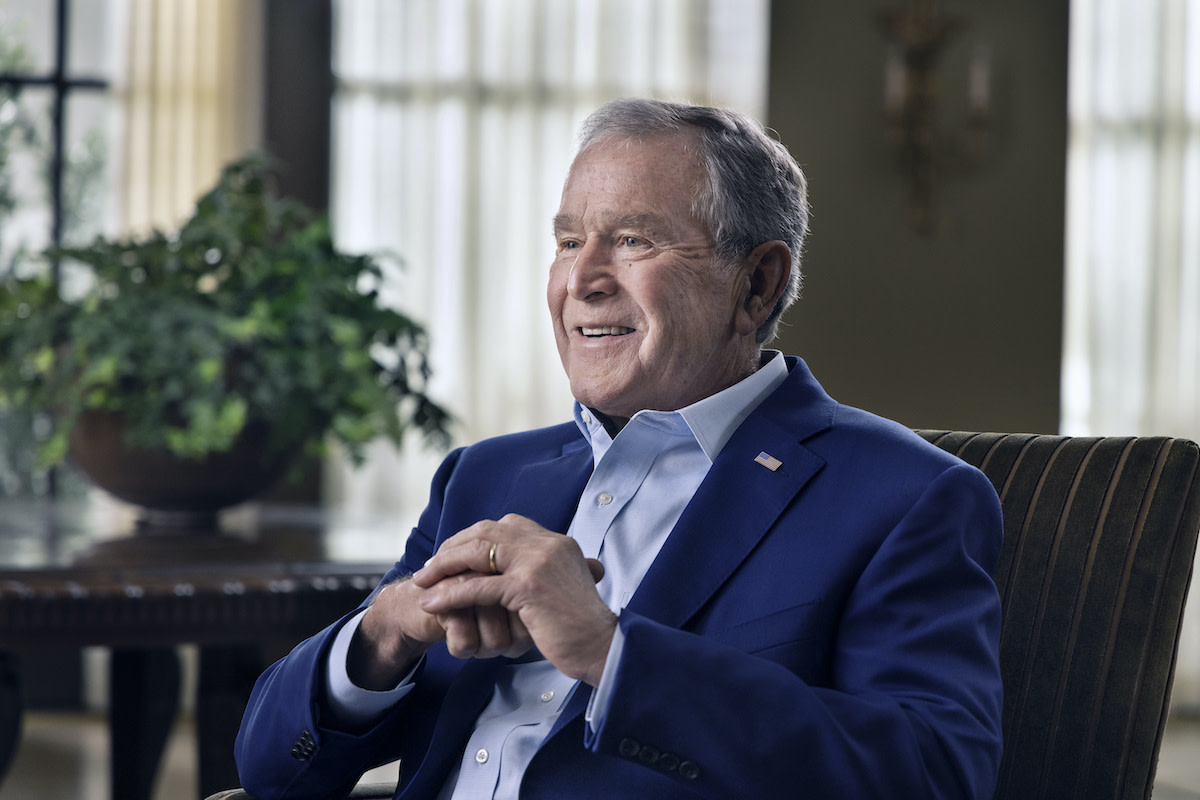President George W. Bush on Building Relationships
Written by MasterClass
Last updated: Aug 12, 2022 • 4 min read
Meaningful relationships can serve as bedrocks for your personal and professional life alike. Learning how to build and maintain connections is essential to living life to its fullest. Read on to hear how former President George W. Bush managed to create long-lasting and mutually fulfilling bonds with other powerful people on the world stage as well as in his own personal life.
Learn From the Best
About President George W. Bush
President George Walker Bush was born in New Haven, Connecticut, to Barbara Pierce Bush and George Herbert Walker Bush. President Bush served as the forty-third president of the United States.
President Bush’s path to the White House was not always obvious—he had stints in the military, business, and baseball before a sudden launch to national prominence in his late forties. In the space of a single decade, he won four major elections, including the governorship of Texas.
Why Is It Important to Build Relationships?
Whether face-to-face or via digital means, building strong relationships with team members, friends, supervisors, and occasional rivals can benefit you to an exponential degree. As you build positive relationships, it becomes easier to network through every avenue of your life. The more friends you have, the more likely you are to have people eager to achieve similar and mutually advantageous goals.
This can help you navigate office politics or even global politics. Through honest communication, earnest empathy, and a commitment to consensus-building, you can work together with people of all different backgrounds and beliefs. Even if someone disagrees with you on key issues, they’re more likely to want to seek out a compromise if you both like each other as individual people.
President George W. Bush on Building Relationships
Forging good personal and working relationships allows you to achieve your full potential at the same time you help others achieve theirs. Keep these tips from President Bush in mind as you seek to build better relationships:
- 1. Be empathetic. Emotional intelligence and empathy can go a long way in both professional and personal relationship building. “Personal diplomacy means that you're willing to find out how the other person thinks,” President Bush says. “You're willing to listen to another person's problems or solutions.” Practice active listening and utilize effective communication skills. Try to see things from their point of view and feel the things they feel.
- 2. Develop an interest in people. To build a relationship, you have to take a genuine interest in the other person’s life. “I've always liked people,” he says. “I've been interested in people; I've been interested in their backgrounds; I'm interested in their thoughts. And it doesn't take much effort to ask somebody what they think.” When someone knows you genuinely care about them and that you want to get to know them, it’s easier for them to build trust in you.
- 3. Find common ground. Even in times of extreme polarization, there are always areas of commonality upon which to build a foundation of mutual respect and goodwill. “There's always common ground to be found,” President Bush says. “Whether it be children, pets, sports, the arts, you can always find common ground, you just have to seek it.” This can lay the groundwork for improved personal and business relationships, as you set aside differences to engage in teamwork based on a mutual goal.
- 4. Focus on the greater good. Recognize you can still disagree with a person while pursuing a mutually beneficial outcome. “Focus on the greater good,” President Bush advises. “Now, debates are important, but they're certainly not as important as a nation that's able to work together or workers that are able to collaborate or people willing to share sympathy.” For that matter, disagreement can actually help facilitate better team-building and decision-making, so long as everyone remembers what they have in common, too.
- 5. Learn to let things go. Healthy relationships still include a fair amount of conflict and even regretful words and actions from time to time. “You gotta learn to forgive because there are heated moments, and people say things about you that can be ugly and personal and biting,” President Bush says. “And if that becomes a part of your thinking—in other words, ‘I'm gonna get that person’—then you'll never have a friendship.” As you get to know people, strive for kind and open communication. Be ready to accept an apology or offer one of your own if the situation calls for it.
- 6. Make an effort. Great relationships take effort from both people involved. “My advice to somebody about building relationships is to make an effort to do so,” he says. “There are all kinds of ways to do that. Sharing experiences is a way to build relationships.” Remind the other person you want the best for them in unique ways. Ask them how you can let them know you genuinely care about their well-being.
- 7. Put people at ease. Develop a sense of self-awareness and humility to make people feel safe around you. “One of the keys to communication is to figure [out] how to enable the person you're talking to to relax,” President Bush says. “Well, one way you can do it is through self-deprecating humor. Another way is to say unexpected, friendly things.” Through effective body language and people skills, you can help people of all different persuasions feel completely comfortable around you.
Learn More
Get the MasterClass Annual Membership for exclusive access to video lessons taught by the world’s best, including George W. Bush, Paul Krugman, David Axelrod, Doris Kearns Goodwin, Karl Rove, Jane Goodall, and more.
